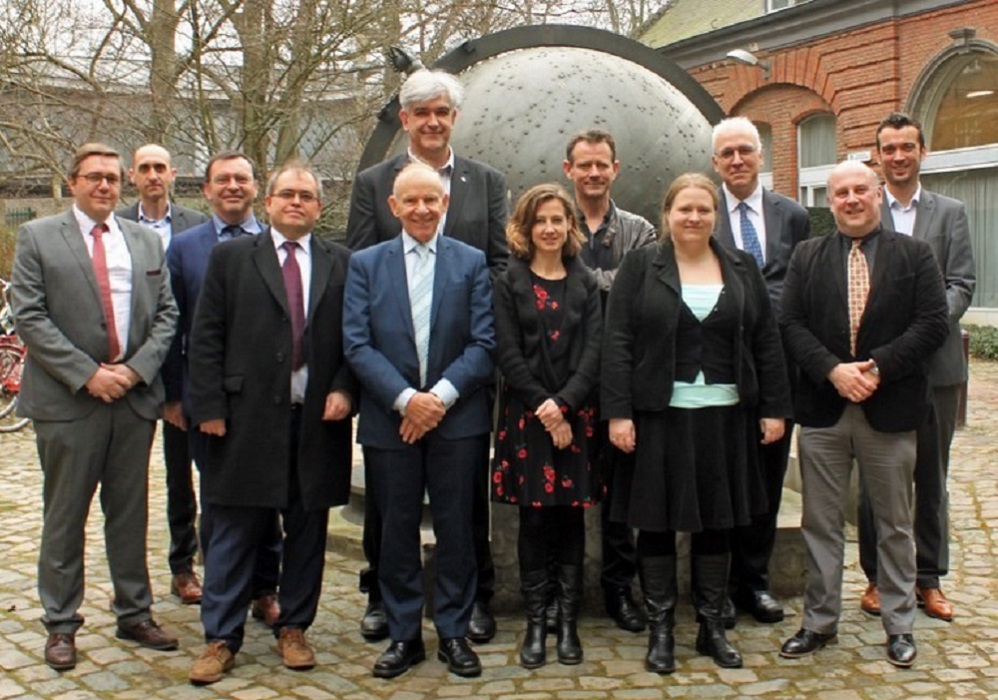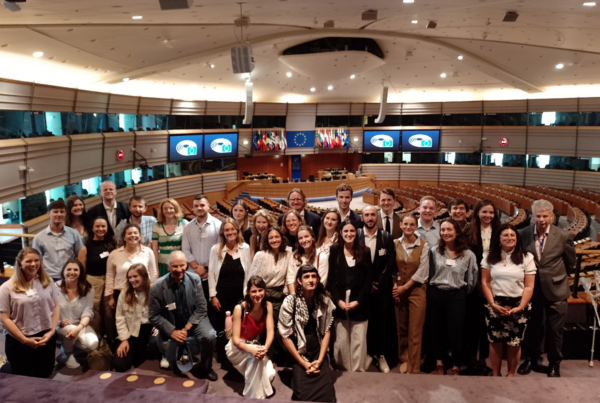
March 2019
KU Leuven and Freie Universität Berlin have joined the Europaeum network
Press Release: embargoed until 12 noon on 5th March 2019
The Europaeum is delighted to announce that KU Leuven and the Freie Universität Berlin are joining the Europaeum with effect from the beginning of 2019.
In the last two years, the Europaeum has also seen the addition of St Andrews University and the University of Luxembourg. In addition, the Catholic University of Portugal has become a full member (the Institute for Political Studies, Lisbon, was formerly an Associate Member). As a result the Europaeum now consists of an association of sixteen of the leading universities in Europe.
Dr Andrew Graham, Executive Chair of the Europaeum, commented “Our Director, Dr Mayer, has been leading the discussions with these universities. I commend him on his work and we are very pleased indeed to have KU Leuven and Freie Universität Berlin as additional members. Both are outstanding research and teaching universities and they and their faculty and students represent a significant strengthening of the Europaeum. We are looking forward to working with them. The Europaeum was founded when the idea of Europe was in its heyday. However, the current strains and stresses showing across Europe make it even more important today to bring outstanding young people together to learn to work collaboratively and to become the problem solvers for the twenty first century.”
New Members
We are also pleased to announce that we have recently added two new Trustees: Baroness (Margaret) Jay of Paddington, former leader of the House of Lords, and Professor Sally Mapstone, Vice-Chancellor of the University of St Andrews. These fresh appointees maintain the tradition of the Europaeum of being closely connected both with academia and the wider society.
Notes to Editors
The Europaeum
The Europaeum is an association of some of the leading universities in Europe. It was created in 1992 on the initiative of Lord (George) Weidenfeld, Sir Ronald Grierson and Lord (Roy) Jenkins, who was then Chancellor of the University of Oxford and formerly the first President of the European Commission. It promotes extensive academic collaboration across its member universities and brings together, within an educational context, exceptionally talented young people who will help shape the future of Europe. The earliest members were the universities of Oxford, Leiden, and Bologna.
The network has continued to grow ever since: today, its sixteen members include the universities of Paris (Panthéon-Sorbonne), Geneva (Graduate Institute of International and Development Studies), Prague (Karlova), Madrid (Complutense), Helsinki, Kraków (Jagiellonian), Barcelona (Pompeu Fabra), Munich (Ludwig-Maximilians-Universität), St Andrews in Scotland, the Grand Duchy of Luxembourg, Lisbon (Catholic University of Portugal) and now KU Leuven and Freie University Berlin. The Central European University is currently a ‘Special Member’ for one year in recognition of the threats to academic freedom that it is experiencing.
KU Leuven
KU Leuven is Europe’s most innovative university (Reuters list, 2018). Located in Belgium, it is dedicated to research, education, and service to society. KU Leuven is a founding member of the League of European Research Universities (LERU) and has a strong European and international orientation. The scientists at KU Leuven conduct basic and applied research in a comprehensive range of disciplines. University Hospitals Leuven, a network of research hospitals, provides high-quality healthcare and develops new therapeutic and diagnostic insights with an emphasis on translational research. The university welcomes more than 50,000 students from over 140 countries. The KU Leuven Doctoral Schools train approximately 4,500 PhD students.
Freie Universität Berlin
Founded in the year 1948 in what was then West-Berlin, Freie Universität Berlin (FUB) today is one of the biggest and most renowned research institutions in Germany with more than 32,000 students and 4,000 doctoral students. Its already strong academic reputation and excellence has been further expanded since 2007: within the German Excellence Initiative, FUB was one of the select few institutions awarded for both its research clusters and its strategic concept as the “International Network University”. Freie Universität Berlin has established a global network of liaison offices in seven countries and works intensively with strong academic partners across the globe. With over a third of its doctoral students coming from abroad and more than 600 international visiting scholars per year, Freie Universität is one of the most internationally recognized German research institutions.
Link to KU Leuven Press Release



